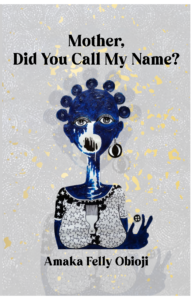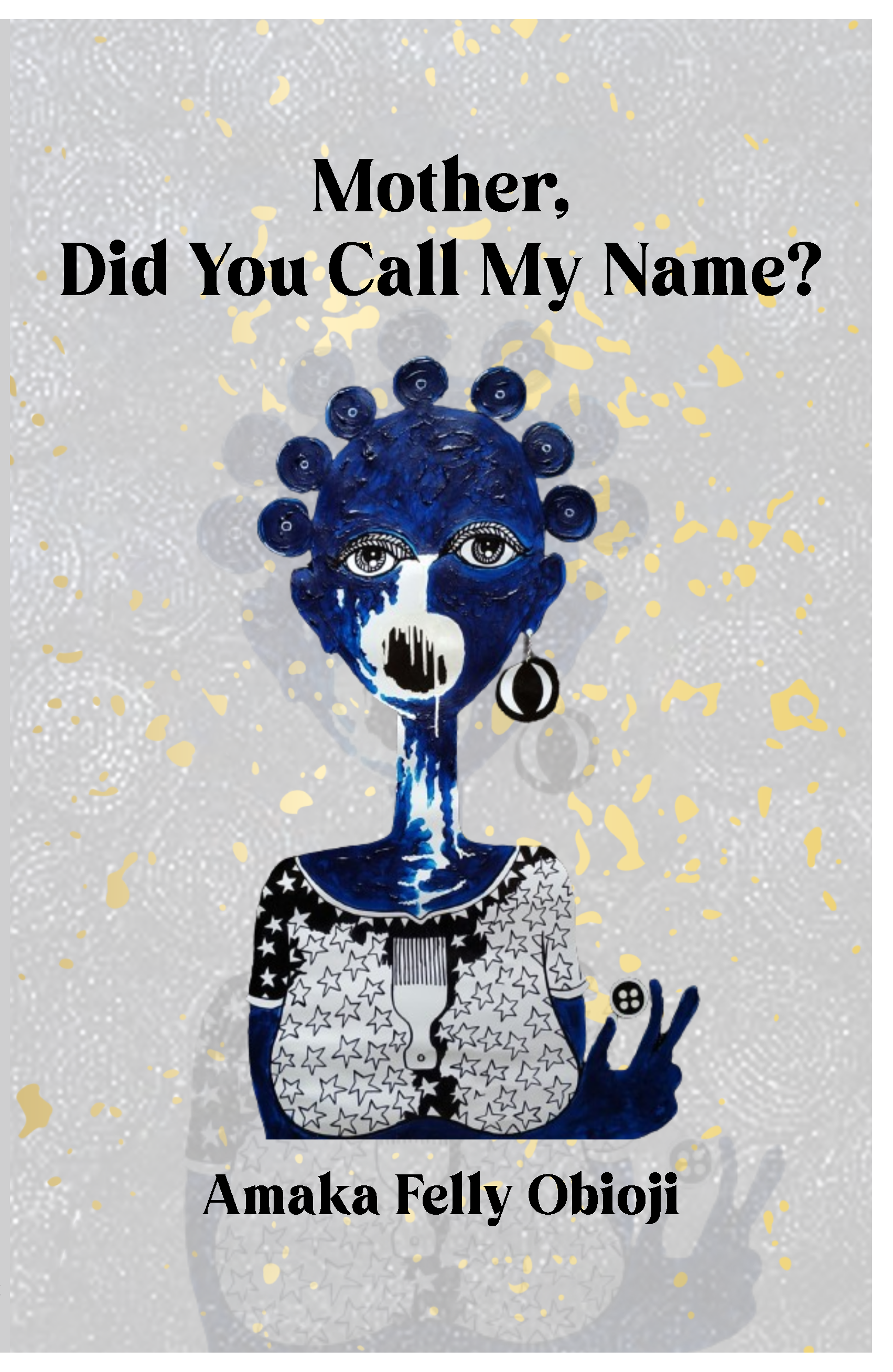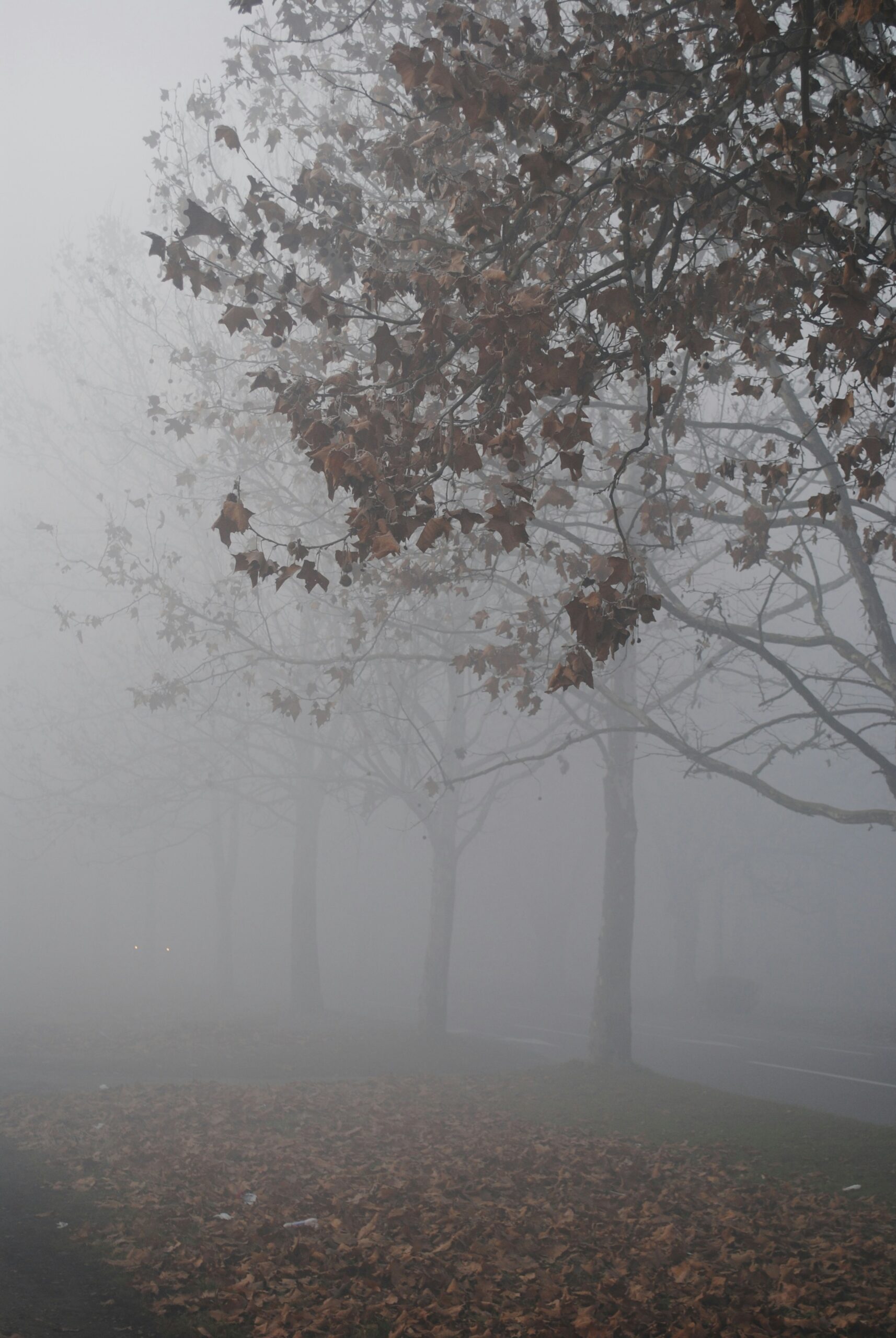-
- Title: Mother Did You Call My Name?
- Author: Amaka Felly Obioji
- Publisher: SEVHAGE
- Number of pages: 119
- Year of publication: 2024
- Category: Poetry
- Reviewer: Mathew Daniel

Amaka Felly Obioji’s Mother Did You Call My Name? is a four-part solemn venture into self, into the clandestine nature of sadness rooted within and around. It is a collection filled with consciousness, a sense of suffering grazing through each tuft of hair. It is a collection reaching inward and outward for salvation. It is a protest, a polemic of the bruised. A walk through a dark loam where the reader can keenly observe along with the speaker, mornings lumbering into a darker version of itself, nights pitching inexplicably accompanied by gloom, a beleaguering haze. Despite all of these, the speaker diacritically highlights on and displays attentive listenership to the voice of hope, to little joys lying around, to true friendship and intimacy, and the wheel of time.
I have washed off the ugly smell of patriarchy
and the way it has taught me to behave.
I am a woman unbecoming of everything
society has forced me to accept about myself.
The second part of the collection steers strongly toward spirituality—a journey into the divinity of motherhood. In “XLI” the speaker not only quaintly paints ‘god’ as a “woman” but also one “in the replica” of a mother. The couplet in “XLI” is a power drive into the worship of motherhood in the succeeding poem, the apex inevitably apotheosizing motherhood.
Memory plays a major role in this part of the collection as the speaker recalls intimately, the soothing touch of mother in “XLV” “My childhood is filled with my mother’s face”. In these pockets of images, the speaker finds succor.
Elsewhere, strength is drawn from a long line of matrilineage who must have shared from the same chalice of experience:
The entire pyramid of conversations, woven and
passed down to my mother, by her mother and
her mother’s mother, I am the continuation of the
dreams of my foremothers, an entire lineage of
women who have passed soft words, through
time, to my soul in their native tongue, a
symphony of hope.
The speaker stills that notion with more certainty in “XLIX”:
My foremothers watch me from the other end.
The daughter who must walk this path
Who would carry a voice they had buried deep
down their throat.
The poem in “LIX” reveals the speaker’s strong will to walk towards the same dream but through a feministic aisle:
You can despise what she settled for
and continue the dreams she once held as a child.
Amaka also relays the concept of mother as a “happy place”, and motherhood through role playing as her mouth “weaves prayers.”
The third part, “Homecoming”, unhinges an internal bloom of desire, nostalgia steaming through pages of the collection, a hunger for familiar warmth and embrace. At one point, the speaker asks “How do you know you have left home?” an attempt towards provoking emotive reaction. At other points, the speaker narrates how (literally and literarily) home calls everyday remind her of love. And maybe, the demarcations in love are the boundaries of home. Thus, it will not be out of place to say one’s distance away from home can be measured in love.
The collection climbs to a climactic height where the speaker declares “Joy found me.
In my broken pieces, in my uncertainty”. The final part, that embodies the whole collection saunters down the resolution lane. The poem in “LXXXIX” exemplifies that hope is leaving the door open even for the improbable:
Beginnings and endings are almost the same,
it’s the not knowing that something will happen,
whether it ushers in joy or sorrow, we can never
tell.
In this collection, each poem comes with its rawness, as a raw seed stripped of flamboyancy and undue adornment as a mourner would when pleading her case in the face of social repression perhaps to reveal rather than obfuscate. To provoke emotional alignment with so much simplicity and vulnerability, and possibly agreement while reminding us that our emotion—the abstraction of our being—guides us towards a saner path. To understand the collection, one can approach it imagining each poem as the daily entries of a journal. It’s like looking into the poet’s daily thoughts and personal ordeals as she nurses herself through the suffering recalling the words of matriarchs, their experiences, prayers, love, and garnering strength from them as they light her path.
Mathew Daniel is a graduate of Mass Communication from the Ahmadu Bello University, Zaria and a general reviewer. His poem ‘Chronicle of the beginning’ made the winner’s list as third runner up in 2020 for Shuzia’s maiden writing competition themed ‘IN THE BEGINNING.’ He tweets @_MathewDaniel_ and can be found on Instagram @thismathew_
- THE AFRICAN [SUB]TEXT IN OGUNDARE’S GRIEF DIARY: A REVIEW by Hyginus Ekwuazi - April 10, 2025
- What ‘Nigeria Meets Sweden: An Intercultural Cookbook by Philippe Glago’ Shows: A Review by Soji Cole - March 13, 2025
- SEVHAGE and Konya Shamsrumi presents The Poetry Club UDUS Anthology 2025 - February 11, 2025













Leave a Reply